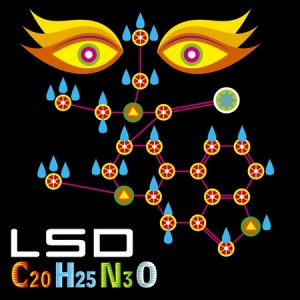Powerless Over Lust

Francis Hartigan, a biographer of Bill W., described him as seemingly being unable to control himself sexually. Despite knowing how his philandering was a potential threat to A.A., Bill couldn’t/wouldn’t stop. At times his despair and self loathing over this issue left him feeling unworthy to lead A.A. There was a “Founder’s Watch” committee of friends who would keep track of Bill during the socializing that took place at A.A. functions. When they saw “a certain gleam in his eye,” they would steer Bill off in one direction and the young woman he had been talking to in the other. “Sexual fidelity does not seem to be something Bill was capable of.”
Matthew 5:27-32 in the Sermon on the Mount addresses the issue of adultery. The passage begins rather clearly: “You have heard that it was said, ‘You shall not commit adultery.’ But I say to you that everyone who looks at a woman with lustful intent has already committed adultery with her in his heart.” Jesus begins with a repetition of the Seventh Commandment’s restriction against adultery to his largely Jewish audience. The understanding to his audience and to other men in the ancient world was that the commandment forbade having sexual intercourse with a married woman. Leon Morris’s comment on this matter was that: “A married man could have sexual adventures as long as they did not involve a married woman.”
But as was typical of Jesus in the Sermon on the Mount, he challenges the restricted interpretations of Old Testament commandments given to God’s people. “But I say to you,” even looking lustfully at a woman means you have already committed adultery with her in your heart. Even the great rabbis stopped short of making such an important declaration about the importance of fidelity in marriage. In effect, Jesus was doing away with the old “double standard.” Men and women were equally required to be faithful in their marriages.
Note that Jesus includes matters of the heart—the thoughts, emotions and desires—as equal to overtly sinful behavior. Craig Blomberg said: “Christians must recognize those thoughts and actions which, long before any overt sexual sin, make the possibility of giving in to temptation more likely, and they must take dramatic action to avoid them.” Elaborating on this point, Jesus pointed to two of the primary bodily offenders in sexual sin outside of adultery—eyes and hands. With figurative and hyperbolic language, he said it was better to lose an eye or a hand, “one of your members,” than to end up in hell as a consequence of your sin. The message is to do whatever it takes “to control natural passions that tend to flare out of control.”
Alcoholics Anonymous, the A.A. Big Book, spent a good bit of time talking about sex. Given that Bill wrote the “How It Works” where that the section on sex appears, we may get some insight into his views on his problems with sexual fidelity and why he struggled with depression and self-loathing over his inability to control this compulsion.
Bill began by saying: “Now about sex. Many of us needed an overhauling there.” He then noted the extremes of human opinion between a view of sex being “a lust of our lower nature” and the voices who cry for sex and more sex; those who “bewail the institution of marriage.” And those who see most of human troubles traceable to sexual causes. He said A.A. didn’t want to be the arbiter of anyone’s sexual conduct. “We all have sex problems.” It’s part of being human. But what can we do about it?
The answer begins with an inventory of your sexual conduct. Where were you selfish, dishonest, or inconsiderate? Who have you hurt? Where did you unjustifiably arouse jealousy, suspicion or bitterness? Where were you at fault and what should you have done differently? “We got this all down on paper and looked at it.” The test of each relationship was whether or not it was selfish. “We asked God to mold our ideals and help us live up to them. We remembered always that our sex powers were God-given and therefore good, neither to be used lightly or selfishly not to be despised and loathed.”
Whatever your ideal was, you should be willing to grow toward it. Be willing to make amends, provided that doesn’t bring about more harm than good. God alone can judge your sexual situation. Counsel with others, but avoid hysterical thinking or advice. Suppose you fall short of the chosen ideal and “stumble.” Does that mean you are going to get drunk? Some people say that will happen, but it is only a half-truth. It depends on our motives.
If we are sorry for what we have done, and have the honest desire to let God take us to better things, we believe we will be forgiven and have learned our lesson. If we are not sorry, and our conduct continues to harm others, we are quite sure to drink. We are not theorizing. These are facts out of our experiences.
To sum up about sex: We earnestly pray for the right ideal, for guidance in each questionable situation, for sanity, and for the strength to do the right thing. If sex is very troublesome, we throw ourselves the harder into helping others. We think of their needs and work for them. This takes us out of ourselves. It quiets the imperious urge, when to yield would mean heartache.
Hartigan said a close friend and confidant of Bill’s thought that his guilt over his infidelities was a large part of his struggle with depression. Bill would always agree with the friend that he needed to stop. But just when the friend thought they were getting somewhere, Bill would say he can’t give it up and start rationalizing. “Bill’s behavior caused some of his most ardent admirers to break with him.”
Bill seems to have kept himself on the razor’s edge of not drinking over his sexual conduct. He didn’t drink, but he suffered from depression for a number of years. He also didn’t seem to have true sorrow or repentance for his actions and an honest desire to let God take him to better things sexually. Returning to the Matthew passage, I wonder if Bill never really accepted that he needed to stop lusting after women in his heart (Matthew 5:28). While he practiced and wrote about doing whatever it took to not drink, he failed to apply that principle to his sex life. We could even say, perhaps, he never truly applied the First Step to his sexual conduct.
This is part of a series of reflections dedicated to the memory of Audrey Conn, whose questions reminded me of my intention to look at the various ways the Sermon on the Mount applies to Alcoholics Anonymous and recovery. If you’re interested in more, look under the category link “Sermon on the Mount.”








